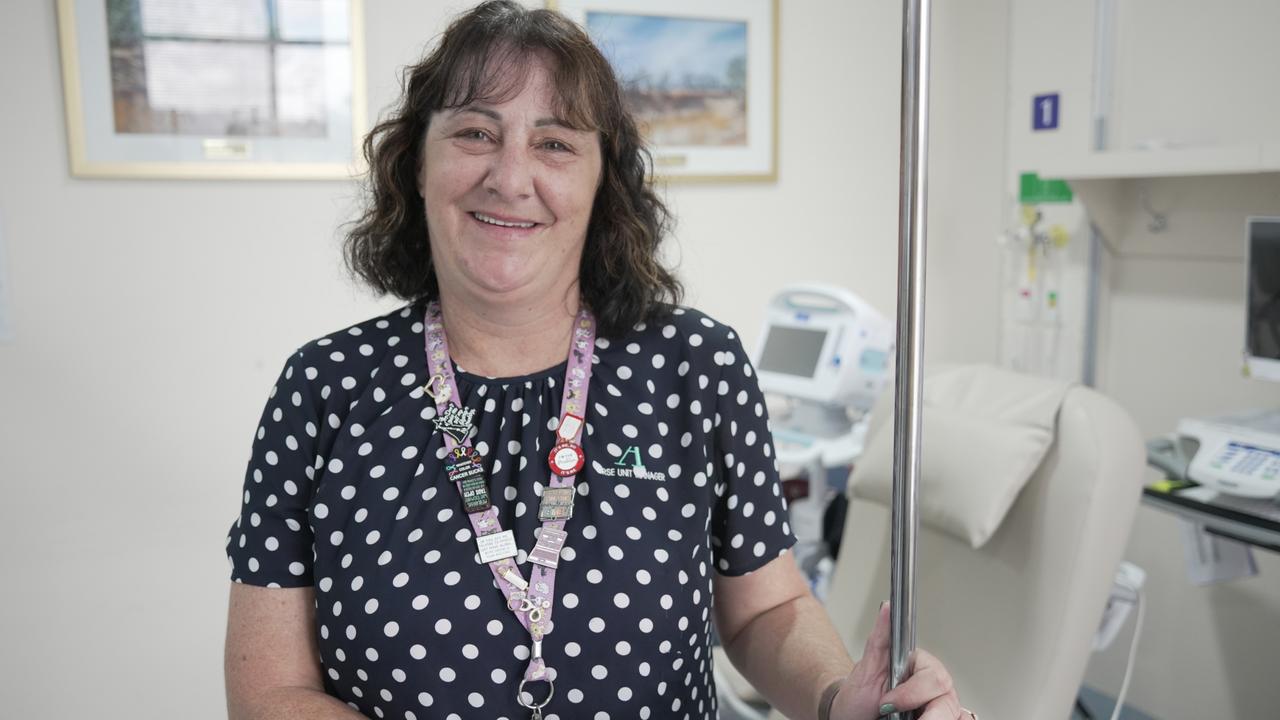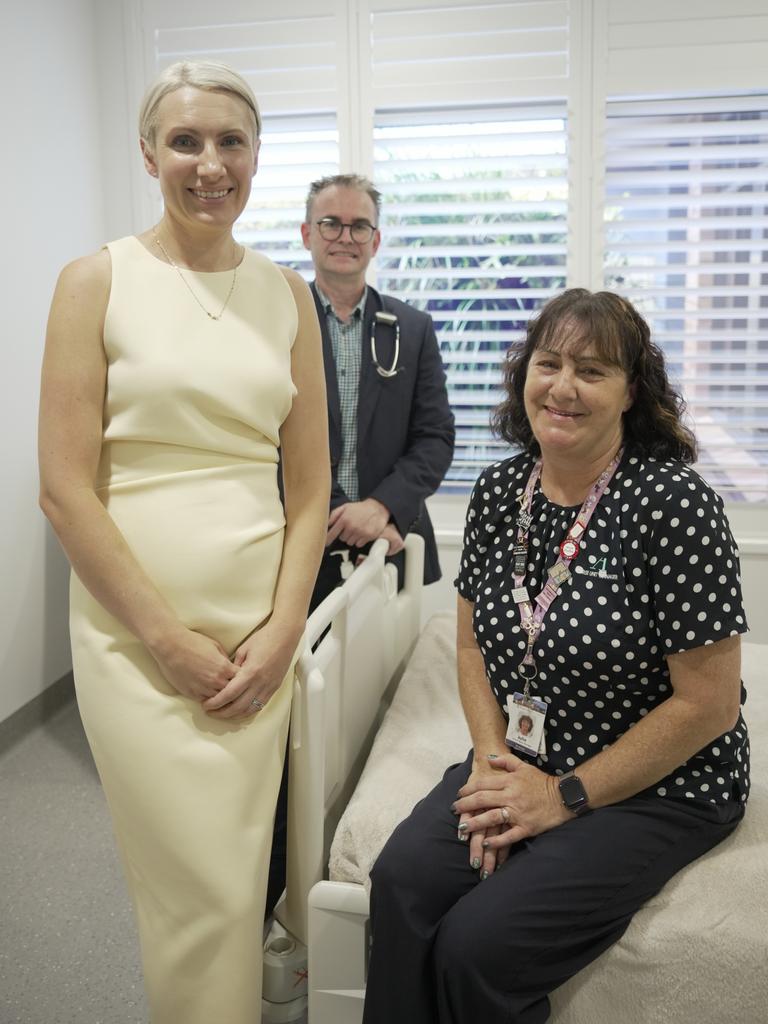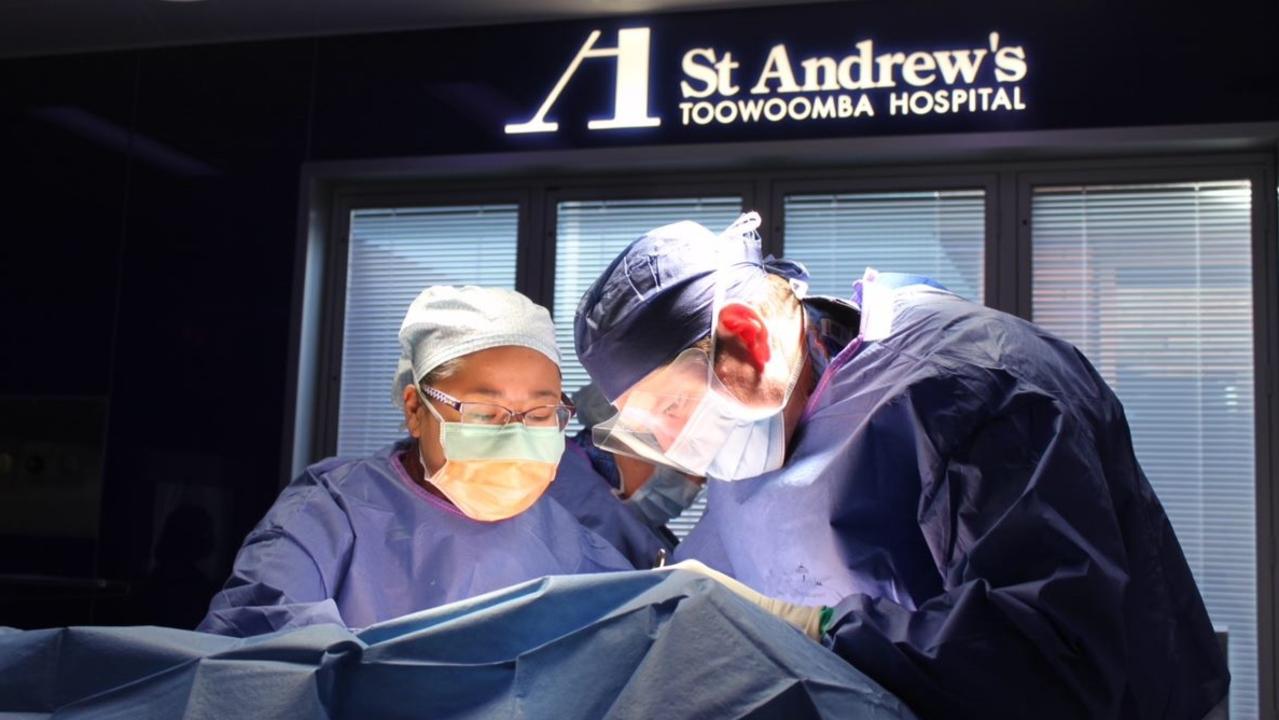St Andrew’s Toowoomba Hospital to open new cancer care department to keep patients local
More Darling Downs patients receiving cancer treatment will be able to stay in Toowoomba for treatment once a city hospital launches a new department.
Cancer
Don't miss out on the headlines from Cancer. Followed categories will be added to My News.
In her 20 years as a cancer care nurse at St Andrew’s Toowoomba Hospital, Julie McEwen has witnessed patients refuse treatment when told they would need to leave the region to continue it.
“A lot of the patients have said in the past, if they had to go to Brisbane, they just wouldn’t have treatment – they just wouldn’t bother,” the chemotherapy nursing unit manager said.
“It’s a big upheaval for them because many are still working, they’ve got kids in school, so they have to literally up-end their lives and go down there for potentially (months) on end.
“To be able to stay here and have their support crews still around is a big thing for them.”

Less Toowoomba and southwest Queensland cancer patients will be forced to make that choice now after St Andrew’s announced the upcoming launch of a dedicated cancer care department to unite its services and specialists under one roof.
The massive project, set to be completed later this month, will see the private hospital build on its existing cancer treatment and care infrastructure by upskilling staff, upgrading both day and inpatient facilities and streamlining referral services.

Toowoomba Haematology and Oncology Clinic practice owner Dr Joel Collins, who has a significant presence at St Andrew’s, said the new department would be particularly helpful for acute cancer patients that required aggressive and sometimes sophisticated treatment.
“The launch of this specific cancer care ward will also give a specialised nursing staff and program streaming so that we can have sort of increased confidence to have patients who we otherwise might have considered sending to Brisbane, to treat them locally,” he said.
“To give an example a patient who has acute leukaemia is a life-changing diagnosis, which between diagnosis and coming to hospital can be as short as 72 hours.
“These patients would have to get a diagnosis and go to Brisbane, even though they’re probably working, have kids, have parents and they need support people and all of those lives are uprooted and relocated for a period of six to 12 months in another city.
“To be able to deliver these treatments here with the support of the hospital means that while it is certainly a very life-disrupting diagnosis, it takes out of the picture the fact that people no longer have to relocate to another city and they can get on with things as best they can.”
The improvements are already on display, with Dr Collins revealing the hospital was currently treating two young patients with leukaemia.
“Somewhat serendipitously, we’ve actually had two younger patients with acute leukaemia who required more aggressive management and given the motivated staff and motivated executives at St Andrew’s Hospital, we had the confidence to bring both of those patients in and treat them locally for their acute leukaemia,” he said.

“That is something we haven’t done for the last few years and I’m very happy to report that both of those patients are going very well and are on plan to get discharged in good shape.”
St Andrew’s chief executive Linda Jorgensen said the department would ensure patients at any stage on their treatment journey could stay in Toowoomba — even if it hadn’t been successful.
“We will have a cancer care co-ordinator that will have an increased scope of practice that will enable them to work closely with our specialists here that we have at SATH,” she said.
“On average, we have approximately 50-60 day oncology patients come through daily with some of them needing to access inpatient care and it can depend on what’s happening with them and the complexities with their care.
“They may come in for day oncology at one point in time, or they may originally have come in for screening, they may be a surgical case, or they might need overnight care.
“This ward will be able to provide palliative services as well, for patients that unfortunately may not be able to improve their care long-term.
“It’s about providing that start-to-finish service for patients.”
A dedicated cancer care ward has long been a dream of Ms McEwen’s, who said her staff almost became part of a patient’s support network.
“It’s wonderful, and I’ve been wishing for a dedicated oncology ward for many years — it’s definitely been a dream of mine,” she said.
“Our patients get attached to the chemo nurses; they are their lifelines, so to be able to have these specialised staff caring for them is going to make a big difference for them too.
“They trust us, so we have a very special relationship with the patients.”









